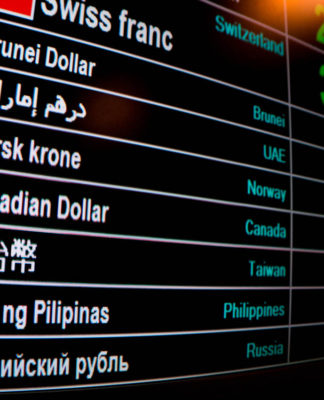Richard Cayne Meyer notes that Japanese Prime Minister Shinzo Abe’s, and his deputy Taro Aso’s, intentions for Japan are best understood after appreciating their family histories and the fiscal time bomb facing Japan.
Both their families have over 150 years of history in providing both ministers and prime ministers to successive Japanese governments which, combined with the country’s savings being insufficient to fund the burgeoning national debt within five to seven years, means both men see it as their deep-rooted duty to rescue the country from an otherwise inevitable bankruptcy. They also see Japan’s economic resurgence as a prerequisite to re-establishing Japan’s position in the world.
Their recent electoral successes should ensure governmental stability, with Japan having endured 15 prime ministers over the last 25 years. This time Abe has a clear majority in both houses of parliament, strong electoral support and most importantly dominates his own party, the LDP (Liberal Democratic Party). Prior infighting within the LDP was the main cause of the historic prime ministerial turmoil notes Richard Cayne of Meyer International in Bangkok.
Abenomics
Richard Cayne of Meyer remarks that the current administration has both the political will as well as the political power to pursue the required dramatic policy shifts. These entail aggressive monetary easing to stimulate loan growth, substantially higher government infrastructure and defense spending to kick-start the economy, and deregulatory measures to make more efficient use of resources such as men, money and materials.
In the short term, this means taking on greater budget deficits and outstanding national debt to finance the recovery which, once it has taken hold, will eventually lead to improved tax receipts that reverse the fiscal deterioration.
Yen weakness: an unintended consequence
The intended doubling of the money supply in two years compared to a relatively static economy should undermine the yen and see it fall substantially, aided by further fiscal deterioration.
The yen’s fall is merely an “unintended consequence of their domestic policies”. Compared to the US, the sum of money involved in easing is greater than all three QE fundings, acting on an economy less than a third of the size and in two years rather than five.
Richard Cayne Meyer in Bangkok Thailand notes that this means the Japanese efforts are over ten times as cash, time and GDP intensive as the US actions. This illustrates the dramatic nature of Abe’s policies to rescue Japan.
The intended yen weakness is crucial to the success of Abe’s policy measures. The currency’s fall would lift the yen value of the overseas derived profits, which would then be repatriated to fund increased full-time employment, higher base wages and renewed capital investment. These in turn will lift domestic GDP and tax receipts.
Currently, 85% of employed Japanese pay no income tax, as well as 35% of the workforce not enjoying full-time employment. The average wage of ¥4m puts most individuals below the tax threshold, which is also why the authorities have become increasingly dependent upon indirect taxes i.e. why the consumption tax is being increased next year. However, the latter’s potential negative economic impact will be offset by equivalent supplementary budget expenditure notes Richard Cayne at Meyer International.
Richard Cayne Meyer originally from Montreal, Quebec Canada currently resides in Bangkok Thailand and runs the Meyer Group of Companies. Prior to which he was residing in Tokyo Japan for over 15 years and is one of the founding members of Asia Wealth Group Holdings Ltd a London, UK Stock Exchange Financial Holdings Company.















